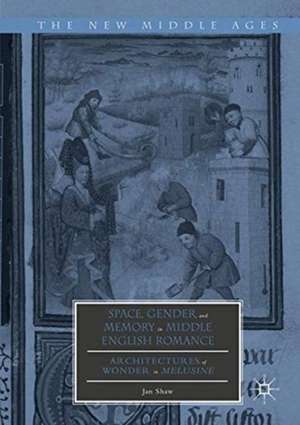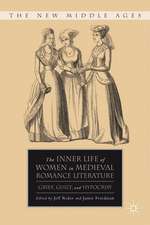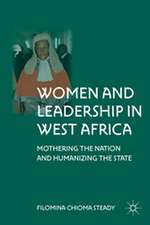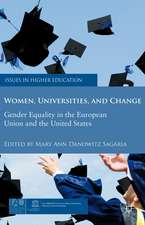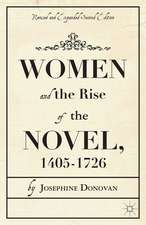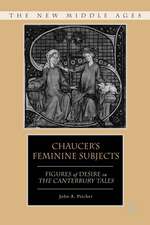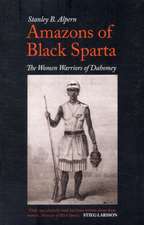Space, Gender, and Memory in Middle English Romance: Architectures of Wonder in Melusine: The New Middle Ages
Autor Jan Shawen Limba Engleză Paperback – 23 mar 2021
| Toate formatele și edițiile | Preț | Express |
|---|---|---|
| Paperback (1) | 389.99 lei 38-44 zile | |
| Palgrave Macmillan US – 23 mar 2021 | 389.99 lei 38-44 zile | |
| Hardback (1) | 585.73 lei 6-8 săpt. | |
| Palgrave Macmillan US – 13 sep 2016 | 585.73 lei 6-8 săpt. |
Din seria The New Middle Ages
- 20%
 Preț: 629.00 lei
Preț: 629.00 lei - 15%
 Preț: 636.80 lei
Preț: 636.80 lei - 20%
 Preț: 566.93 lei
Preț: 566.93 lei - 20%
 Preț: 629.09 lei
Preț: 629.09 lei - 20%
 Preț: 690.00 lei
Preț: 690.00 lei - 15%
 Preț: 524.70 lei
Preț: 524.70 lei -
 Preț: 347.96 lei
Preț: 347.96 lei - 17%
 Preț: 457.56 lei
Preț: 457.56 lei - 9%
 Preț: 626.76 lei
Preț: 626.76 lei - 8%
 Preț: 537.27 lei
Preț: 537.27 lei - 8%
 Preț: 563.61 lei
Preț: 563.61 lei -
 Preț: 303.51 lei
Preț: 303.51 lei -
 Preț: 389.70 lei
Preț: 389.70 lei -
 Preț: 390.63 lei
Preț: 390.63 lei -
 Preț: 380.45 lei
Preț: 380.45 lei -
 Preț: 385.62 lei
Preț: 385.62 lei -
 Preț: 390.25 lei
Preț: 390.25 lei -
 Preț: 385.25 lei
Preț: 385.25 lei - 5%
 Preț: 712.81 lei
Preț: 712.81 lei - 15%
 Preț: 640.06 lei
Preț: 640.06 lei -
 Preț: 398.15 lei
Preț: 398.15 lei -
 Preț: 393.35 lei
Preț: 393.35 lei - 15%
 Preț: 697.97 lei
Preț: 697.97 lei -
 Preț: 388.72 lei
Preț: 388.72 lei -
 Preț: 387.96 lei
Preț: 387.96 lei - 15%
 Preț: 579.20 lei
Preț: 579.20 lei -
 Preț: 391.40 lei
Preț: 391.40 lei - 18%
 Preț: 725.13 lei
Preț: 725.13 lei - 18%
 Preț: 724.17 lei
Preț: 724.17 lei -
 Preț: 388.90 lei
Preț: 388.90 lei - 15%
 Preț: 698.30 lei
Preț: 698.30 lei -
 Preț: 386.39 lei
Preț: 386.39 lei -
 Preț: 387.38 lei
Preț: 387.38 lei -
 Preț: 384.48 lei
Preț: 384.48 lei - 18%
 Preț: 726.69 lei
Preț: 726.69 lei -
 Preț: 385.08 lei
Preț: 385.08 lei - 15%
 Preț: 639.14 lei
Preț: 639.14 lei -
 Preț: 388.72 lei
Preț: 388.72 lei -
 Preț: 387.20 lei
Preț: 387.20 lei -
 Preț: 389.11 lei
Preț: 389.11 lei - 15%
 Preț: 640.24 lei
Preț: 640.24 lei - 15%
 Preț: 499.92 lei
Preț: 499.92 lei - 15%
 Preț: 640.37 lei
Preț: 640.37 lei - 15%
 Preț: 641.71 lei
Preț: 641.71 lei -
 Preț: 384.70 lei
Preț: 384.70 lei - 15%
 Preț: 694.37 lei
Preț: 694.37 lei - 15%
 Preț: 697.47 lei
Preț: 697.47 lei
Preț: 389.99 lei
Nou
Puncte Express: 585
Preț estimativ în valută:
74.63€ • 78.11$ • 62.11£
74.63€ • 78.11$ • 62.11£
Carte tipărită la comandă
Livrare economică 27 martie-02 aprilie
Preluare comenzi: 021 569.72.76
Specificații
ISBN-13: 9781349687541
ISBN-10: 1349687545
Pagini: 272
Ilustrații: VII, 272 p.
Dimensiuni: 148 x 210 mm
Greutate: 0.34 kg
Ediția:1st ed. 2016
Editura: Palgrave Macmillan US
Colecția Palgrave Macmillan
Seria The New Middle Ages
Locul publicării:New York, United States
ISBN-10: 1349687545
Pagini: 272
Ilustrații: VII, 272 p.
Dimensiuni: 148 x 210 mm
Greutate: 0.34 kg
Ediția:1st ed. 2016
Editura: Palgrave Macmillan US
Colecția Palgrave Macmillan
Seria The New Middle Ages
Locul publicării:New York, United States
Cuprins
Introduction.- Chapter One: An Epistemology of Wonder.- Chapter Two: Wonder and Love.- Chapter Three: Building Gender.- Chapter Four: Architectures of Memory.- Chapter Five: Problematic Pasts and New Beginnings.- Conclusion: The Divine Ordo: Reprise.
Recenzii
“The story of the beautiful fairy Mélusine who is cursed by her own mother to transform into a half-serpent once a week has fascinated readers for centuries. … Shaw’s analysis covers an impressive range of modern and medieval concepts … . Shaw’s work lays a good and highly promising foundation for future discussions about this text, and about feminine subjectivity in Middle English romance more broadly.” (Lydia Zeldenrust, Modern Language Review, Vol. 133 (2) April, 2018)
Notă biografică
Jan Shaw is Senior Lecturer of English at the University of Sydney, Australia. She has published on women in the romance of Medieval Britain, medievalism in contemporary literature by women, and narrative and gender approaches in leadership studies. She is also co-editor of Storytelling: Critical and Creative Approaches.
Textul de pe ultima copertă
This book offers a much-needed consideration of Melusine within medieval and contemporary theories of space, memory, and gender. The Middle English Melusine offers a particularly rich source for such a study, as it presents the story of a powerful fairy/human woman who desires a full human life—and death—within a literary tradition that is more friendly to women’s agency than its continental counterparts. After establishing a “textual habitus of wonder,” Jan Shaw explores the tale in relation to a range of Middle English traditions including love and marriage, the spatial practices of women, the operation of individual and collective memory, and the legacies of patrimony. Melusine emerges as a complex figure, representing a multifaceted feminine subject that furthers our understanding of Middle English women’s sense of self in the world.
Caracteristici
Fills a much-needed scholarly gap for Melusine, a work that has been under-explored up until now Approaches Melusine through several theoretical discussions including spatial, gender, and memory theories Widens discussions of Melusine to larger contexts about gender and England in the Middle Ages.
